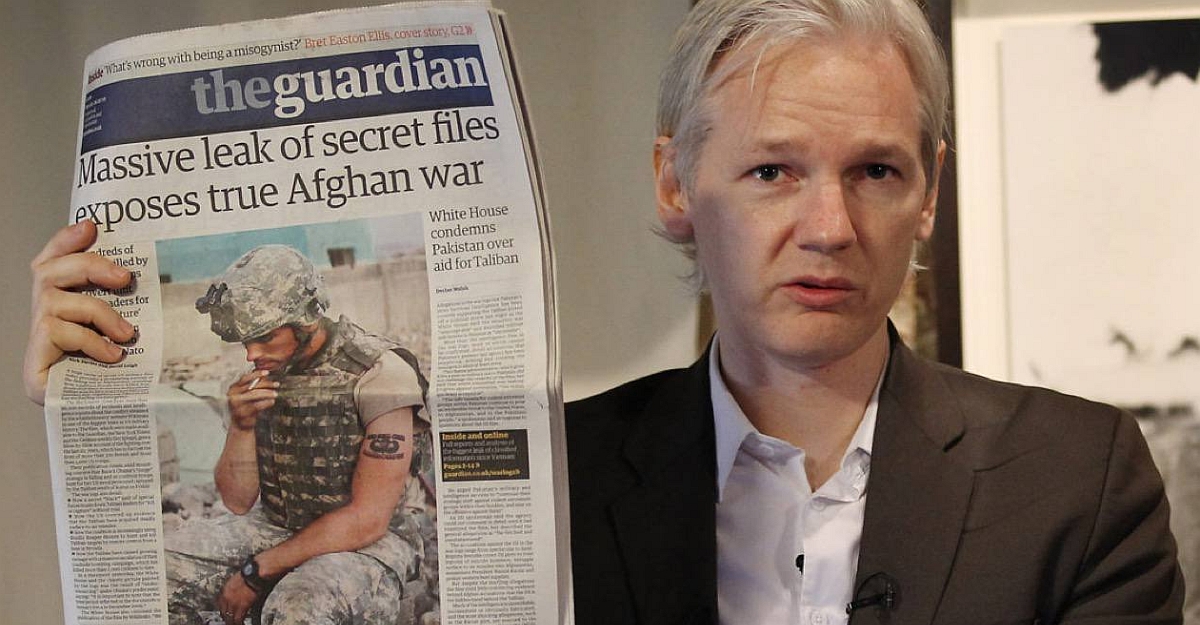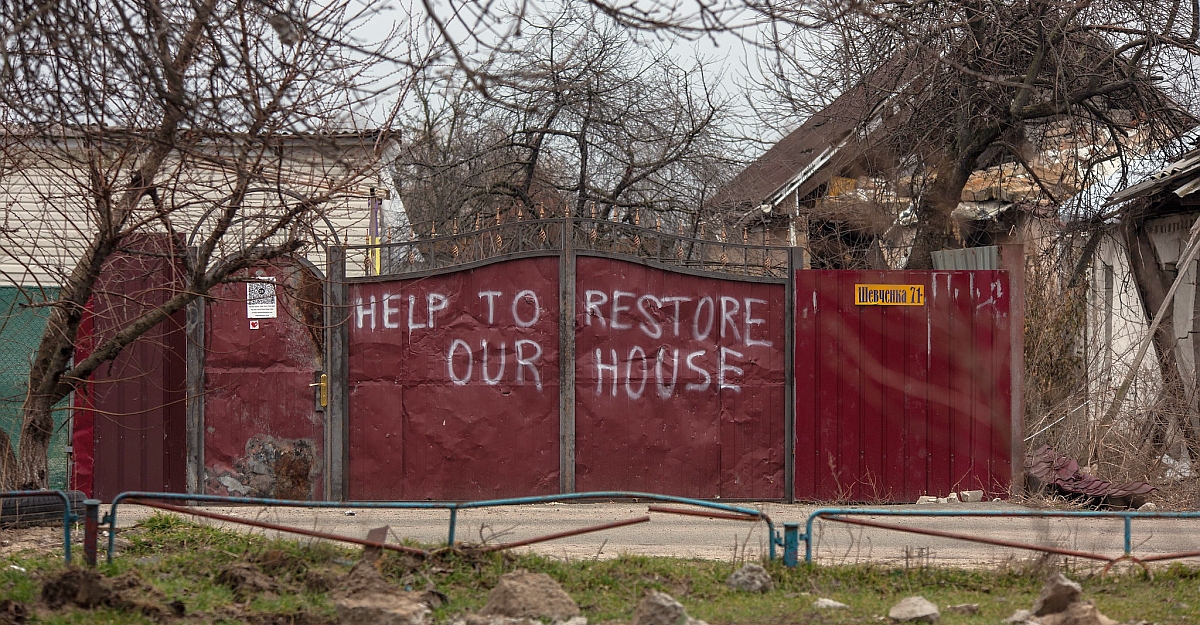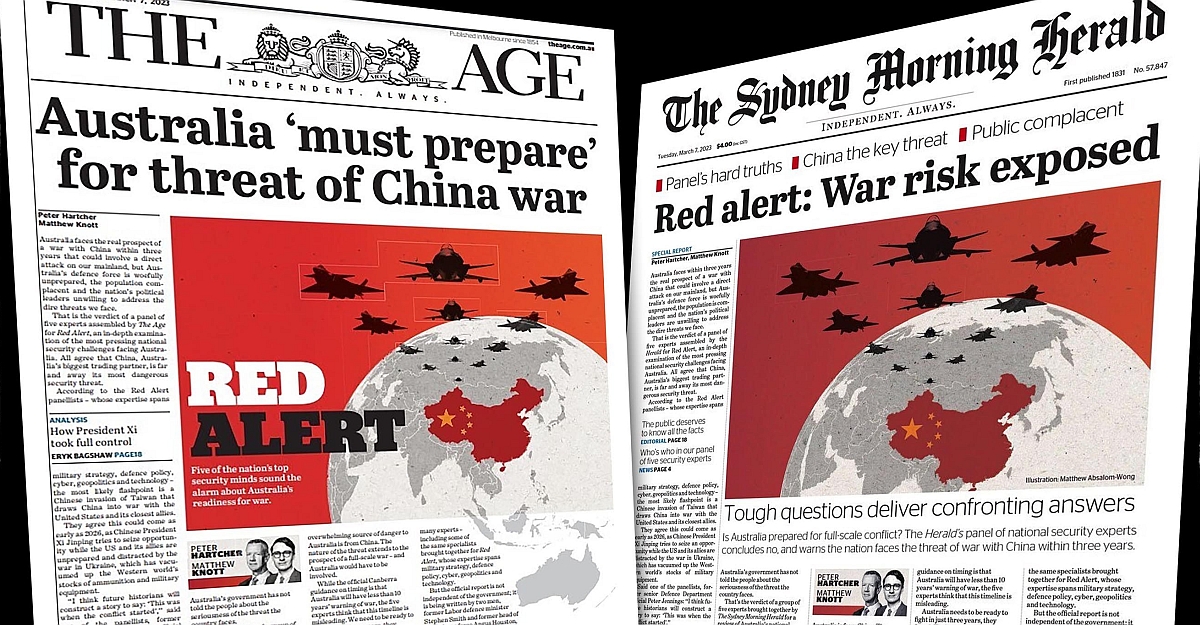When I wrote two years ago in the pages of Overland that there were no rationally persuasive reasons for Julian Assange to be imprisoned in a British high-security prison, I didn’t suspect that nothing would have changed two years down the track. I was naïve: I believed in the exercise of justice. Now, in 2023, I’m reminded of the gorilla in the background of videos used in inattentional blindness tests, but rarely noticed by those who focus on the foreground, preoccupied with an ideological game of tennis volleying points across an unbridgeable divide—between those for whom Assange is a hero and saviour, and those for whom the name ‘Assange’ must not be spoken in polite society.
Seeing the gorilla will require paying attention to some of the ways in which the ‘Assange case’ is as much about its reception among disparate moral-political audiences as about the case itself, and the beleaguered figure at its centre. In the wake of the most recent June 6th ruling of the UK High Court—decided by, yes, one Justice Jonathan Swift—which rejected Assange’s long-standing appeal, let’s assume, but only for convenience, that moral earnestness, legal acumen and other outmoded forms of cultural seriousness have lost their salience, insofar as they seem not to have resolved, in over a decade, the existential aporia of what to do about Assange. I think there are reasons for this, which I’ll itemise by means of five loosely ordered questions.
1. Who or what exactly is ‘Assange’?
A proper name that denotes a discrete individual, or a nexus of intersecting beliefs and discourses whose proponents claim it for their own? This question is important because how it is implicitly understood determines what kind of stories are told about Assange and what claims will be relevant to them. Relevant to the former of these framings, for example, is a recent editorial of the Sydney Morning Herald that, while calling for an end to the long-drawn-out case, assumes Assange’s current circumstance to be largely of his own doing and no-one else’s. Much appreciated, but if nothing of principle in the case has substantively changed in four years, why wasn’t the SMH, among other media who now also believe that ‘enough is enough’, calling for his release in 2019? Because they feel that four years of gratuitous suffering has amounted to time enough served? If so, for what, exactly? Glibly condescending to its subject, the editorial immediately declares its stance of noblesse oblige vis-à-vis the ‘sorry Julian Assange saga’ (a daytime soap serial, an embarrassing display of unbecoming excess) in baldly self-exonerating terms: ‘Trapped in a limbo of his own making, the years have turned ailing WikiLeaks founder Julian Assange into a victim.’
No doubt this unexpected transformation has nothing at all to do with the editorialising of the SMH and other mainstream organs that sustained multiply-biased narratives about ‘Assange’ for a decade during the years before and after his incarceration. To make Assange the unique cause of his own misfortunes is to deny any possibility of a larger nexus of culpability in the media treatment of the case, which included entirely false reports that even following their debunking have not been disavowed.
This of course is not news to anyone who knows about the case. Yet many still believe these reports, including crassly defamatory ones involving personal hygiene and excrement, that have themselves been repudiated by the staff of the Ecuadorian embassy themselves. A ‘sorry saga’ indeed, but who wrote and profited off it? Beyond this, we can take it as a given that any number of political agendas across a feral spectrum of (‘far’-)Left and (‘far’-)Right causes, including their unholy alliances at its extremes, have mobilised the name of ‘Assange’ to serve multiple ends that have little or nothing to do with what Assange himself, Wikileaks’ editor, actually did.
2. Is Assange a journalist, or not? This question raises a specious smokescreen that diverts attention from moral culpability. The idea being that if Assange is not a journalist, what he did was wrong, and if he is, what he did was right. But both of these assumptions are misguided. What matters is what he actually did and whether or not it was of genuine public interest. What Assange’s actions exposed, at least in the cases relevant to the current prosecution, were war-crimes and crimes against humanity committed by US military forces in Iraq and Afghanistan that included, in Iraq, at least 15,000 unrecognised civilian deaths, on top of the at least 66,000 civilian casualties as well as those documented in the Collateral Murder disclosures, that had gone publicly unacknowledged until Manning sent factual evidence for them to Wikileaks and it was made public.
Concerned audiences globally have known these facts about US military crimes (stretching back to 2003) for over a decade, but as reported in March 2023 by Amnesty International, ‘twenty years on, impunity reigns supreme and accountability remains elusive for the human rights violations committed in Iraq.’
It’s worth noting that apparent US impunity for such crimes is never mentioned, for example, by Albanese and Wong who think, contradictorily, that on the one hand the Assange case has seen out its usefulness and ought to end, but also that on the other the British justice system has a legitimate legal case to prosecute, however long it takes. Neither stance commits to a principled judgement for or against the prosecution itself and manages only to obfuscate how a political solution could be achieved.
3. Does the legal case of ‘Assange’ serve justice?
This is a serious question, but it has been addressed in generally confused ways. This is because it’s not clear whose justice could possibly be being served. If it is justice for the US, then they are picking the wrong target. As suggested above, there’s no equivocation about the crimes that were committed by US forces in the period relevant to the inditement against Assange, which focuses exclusively on the War Logs disclosures of 2010. So, what justice could the US prosecution expect in a conviction that would only doubly confirm that US actors are themselves the guilty party?
Justice for Assange, on the other hand, has never been able to get close to legal interrogation, as the entirety of the British court case/s until now has consisted in deliberations as to whether Assange ought to be extradited from the UK or not—about which the UK justice system has so far proven itself ditheringly incapable of ever reaching clarity (that deceptive diffident-Brit act can really be put to good purpose when it needs to be).
What the media commentary on the Assange case rarely ever foregrounds is what if any justice has in twenty years been accorded to the families of those 80,000 and more civilians who unjustly lost their lives, were illegally detained or tortured, or were subjected to grievous abuse, including rape. If 80,000 Americans or Brits or Australians had lost their lives in that way, would those crimes have gone unpunished for twenty years? Take note, Albanese, Wong, and Marles, when next you advertise Australia’s eager commitment to US military interests in the Indo-Pacific: it won’t turn out so well, if history is any judge.
4. If Assange is extradited, would the United States be vindicated?
This question assumes that the outcome of the fully Kafkaesque process of Assange’s extradition might legitimately decide whether the US ought to have had its wrongs exposed, and so whether it can be legitimately held culpable for them.
But that way of thinking is a non sequitur and will resolve nothing. Irrespective of how the facts came to be publicised, Assange’s disclosure of US war crimes and crimes against humanity will not be mitigated or invalidated by whether he’s proved guilty of the Espionage Act charges brought against him. That latter juridical saga has become another smokescreen for the moral and legal reckoning with international crimes that the US has committed with impunity, and by extension its legitimacy in the geopolitical order and international rule of law.
The free-speech argument in defence of Assange is only one aspect of that quasi-legal obfuscation. The much larger issue connected with the defence of a free press is whether or not this really enables the exercise of justice with regard to these proven crimes. If not, the exercise of free speech is merely symbolic and it makes no difference whether the democratic polity is furnished with facts about crimes committed in its name. They will continue to be committed and everyone will continue to do nothing about them.
5. If so, isn’t there with regard to the Western-liberal self-understanding a fundamental failure to address, even in principle, the wrongs that Assange/Manning exposed over a decade ago, and so to clearly reject the systemic corruption that enabled them?
As suggested, the argument in defence of Assange centred on free speech is compromised by the failure to prompt a national reckoning with Australia’s ongoing commitment to the US geopolitical project, however compromised it is by demonstrable past abuses.
In spite of the Australian war-crimes in Afghanistan brought to light in the Brereton Report and lately recognised in the civil court dismissal of Ben Roberts-Smith’s defamation case, there remains a disconnect between a Left-liberal will to ‘accountability, transparency and press freedom’ and what that would mean for redressing past abuses and preventing future ones. Only a moral self-reckoning among Western liberal-democratic governments could begin to approach addressing American intransigence and their own double standards when it comes to litigating abuses of human rights. Assange is not a unique ‘victim’ of this fatal blind spot, which shadows whistleblowers like David McBride or the former US marine pilot Daniel Duggan, who each face ongoing litigation and extended local prison time for their perceived crimes against the national security state.
The reason Assange still represents a threat for the Western status quo is that his liberal-democratic audience in general, and Left-political parties in particular, have not been collectively and politically prepared to face the implications of what he and Manning exposed. There’s no point in blaming Assange for this, or seeing him as politically sui generis, let alone solely culpable. Rather, the errors of omission outlined above might well have their own consequences. Will the populist Right continue to achieve political victories, as Trump did in 2016—and might perhaps again in 2024—on the back of what the liberal-democratic Left has neglected for too long, and for all the wrong reasons? Does that back belong to the gorilla that few can see, hidden in plain sight?






